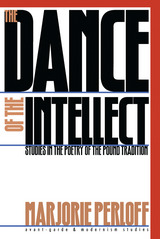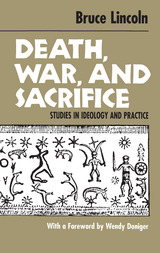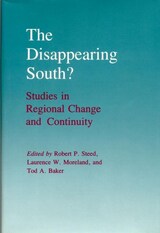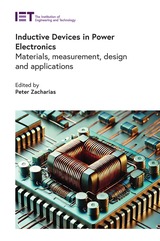7 start with D start with D


Dante's Craft was first published in 1969. Minnesota Archive Editions uses digital technology to make long-unavailable books once again accessible, and are published unaltered from the original University of Minnesota Press editions.
In a series of nine essays, Professor Cambon discusses Dante's language and style and the influence of his poetry on later writers. The first section, a group of six essays, is devoted to the critical studies of Dante's own work. A second section consists of chapters devoted to Dante's influence on the eighteenth-century Italian philosopher Giambattista Vico, on certain American writers, chiefly Herman Melville, Nathaniel Hawthorne, Ezra Pound, and T.S. Eliot, and on the contemporary Italian poet Eugenio Montale.
The pertinence of Dante today is emphasized by Professor Cambon in his introduction to the volume. He writes: "Dante's viability for modern literature springs from the depth and latitude of his own probing into the tangled darkness and light of human existence; and, as some of the essays here collected attempt to show, I have come to believe that Dante can give invaluable clues to the reader of contemporary poetry, whether in its expression of derangement in a new Dark Wood or in its rare glimpses of felicity and wholeness."

religion and society, Bruce Lincoln expresses in these essays
his severe doubts about the existence of a much-hypothesized
prototypical Indo-European religion.
Written over fifteen years, the essays—six of them
previously unpublished—fall into three parts. Part I deals
with matters "Indo-European" in a relatively unproblematized
way, exploring a set of haunting images that recur in
descriptions of the Otherworld from many cultures. While
Lincoln later rejects this methodology, these chapters remain
the best available source of data for the topics they
address.
In Part II, Lincoln takes the data for each essay from a
single culture area and shifts from the topic of dying to
that of killing. Of particular interest are the chapters
connecting sacrifice to physiology, a master discourse of
antiquity that brought the cosmos, the human body, and human
society into an ideologically charged correlation.
Part III presents Lincoln's most controversial case
against a hypothetical Indo-European protoculture.
Reconsidering the work of the prominent Indo-Europeanist
Georges Dumézil, Lincoln argues that Dumézil's writings
were informed and inflected by covert political concerns
characteristic of French fascism. This collection is an
invaluable resource for students of myth, ritual, ancient
societies, anthropology, and the history of religions.
Bruce Lincoln is professor of humanities and religious
studies at the University of Minnesota.


There is widespread agreement that the South has changed dramatically since the end of World War II—the essays in The Disappearing South address the ongoing debate
There is widespread agreement that the South has changed dramatically since the end of World War II. Social, demographic, economic, and political changes have altered significantly the region long considered the nation’s most distinctive. There is less agreement, however, about the extent to which the forces of nationalization have eroded the major elements of Southern distinctiveness. Although this volume does not purport to settle the debate on Southern political change, it does present a variety of recent evidence that helps put this important debate into perspective. In the process it helps clarify the contemporary politics of the South for readers ranging from the scholar to the more casual observer.
The essays in The Disappearing South address the ongoing debate. Contributors, in addition to the editors, include E. Lee Bernick, Earl Black, Merle Black, Lewis Bowman, Edward G. Carmines, Patrick Cotter, Thomas Eamon, Douglas G. Feig, John C. Green, James L. Guth, William E. Hulbary, Anne E. Kelley, Lyman A. Kellstedt, David M. Olson, John Shelton Reed, Harold Stanley, James G. Stovall, John Theilmann, Stephen H. Wainscott, and Allen Wilhite.

The contributors (Gianfranco Zaccai, Albert Borgmann, Richard Buchanan, Augusto Morello, Tufan Orel, Nigel Cross, Victor Margolin, Langdon Winner, Carl Mitcham, Tony Fry, and Ezio Manzini) focus on three broad themes that form a sequence of fundamental issues: how to shape design as a subject matter, how to distinguish the activity of designing in the complex world of action, and how to address the basic questions of value and responsibility that persistently arise in the discussion and practice of design. The editors' introduction provides a useful overview of these questions and offers a multidisciplinary framework for design studies. The essays discuss such topics as the relation of aesthetics to technology, the place of design in social action, the role of the consumer in design decisions, and the need for ethical practice in contemporary design. Manzini's concluding essay shows how the issue of ethics should connect responsible behavior to decisions made every day in the manufacture of objects.

With style and imagination, this iconoclastic work covers the major issues in development economics. In eight carefully reasoned essays, P. T. Bauer challenges most of the accepted notions and supports his views with evidence drawn from a wide range of primary sources and direct experience.
The essays were selected on the basis of their interest to students and general readers from Bauer's book, Dissent on Development: Studies and Debates in Development Economics. Reviewing the previous work, the Wall Street Journal wrote: "It could have a profound impact on our thinking about the entire development question... Quite simply, it is no longer possible to discuss development economics intelligently without coming to grips with the many arguments P. T. Bauer marshalled in this extraordinary work."
READERS
Browse our collection.
PUBLISHERS
See BiblioVault's publisher services.
STUDENT SERVICES
Files for college accessibility offices.
UChicago Accessibility Resources
home | accessibility | search | about | contact us
BiblioVault ® 2001 - 2025
The University of Chicago Press









